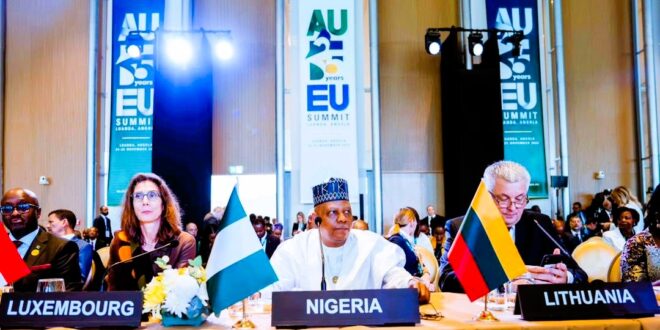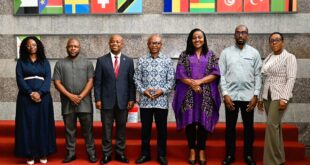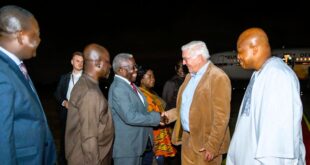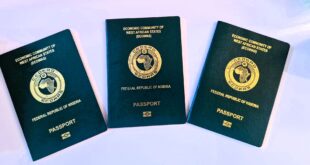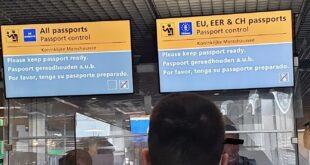Leaders of the African Union and European Union gathered in Luanda, Angola, for the 7th AU–EU Summit on 24-25 November. The two-day meeting ended with a joint declaration that puts practical cooperation at the centre of AU–EU relations — from infrastructure and industrialisation to security, climate action and, crucially, migration. For millions of Africans at home and in the diaspora, the outcomes of the summit, a high-level meeting aimed at resetting and strengthening ties between the two continents, could shape mobility, economic opportunity and development pathways in the years ahead.
Investment and Infrastructure: Global Gateway Enters an Action Phase
A major highlight was the renewed commitment to the EU’s Global Gateway Africa Investment Package, which pledges €150 billion for infrastructure, green energy, digital connectivity and transportation networks. While previous summits often delivered broad promises, Luanda focused on implementation: accelerating electricity projects, completing regional fibre-optic corridors and expanding vocational training linked to green and digital sectors.
These investments are expected to create jobs, strengthen regional value chains and support African small and medium enterprises. For ordinary citizens, the impact could be felt in improved energy access, more reliable online connectivity and reduced barriers for local businesses attempting to enter export markets. In the long term, such economic gains can reduce the pressure that drives irregular migration.
Trade, Industrialisation and the AfCFTA
The summit reaffirmed Europe’s support for the African Continental Free Trade Area (AfCFTA) and for Africa’s push to advance local manufacturing and value addition. The AU stressed that Africa can no longer remain an exporter of raw materials while importing finished goods. Europe signalled willingness to support industrial clusters, technology transfer and training.
If implemented faithfully, this could transform Africa’s economic landscape: more factories, more skilled jobs and greater retention of value within African economies. For the youth — including those contemplating migration — meaningful employment at home becomes more realistic.
Security and Governance
On peace and security, the AU and EU pledged to strengthen joint responses to regional conflicts, terrorism, and humanitarian crises. The declaration includes more predictable support for AU peace missions and crisis-response mechanisms. Improved stability, if achieved, would benefit displaced populations and help prevent new refugee flows.
Migration: A Central Pillar of the Luanda Agreement
In contrast to previous summits, migration took centre stage in Luanda. Both sides endorsed a comprehensive approach that combines mobility, protection and governance.
Key elements include:
- Combating human smuggling and trafficking, with joint operations and better intelligence-sharing.
- Strengthening border management and asylum systems, especially in African transit countries — including training, digital registration tools and support for reception facilities.
- “Safe, dignified and timely” return and reintegration, with more structured reintegration packages for returnees.
- Expanding legal pathways, including opportunities for student mobility, skills partnerships and labour-migration schemes — though details are still to be developed.
- Human-rights safeguards, including respect for non-refoulement and improved protection for refugees.
For African migrants and refugees, the outcomes cut both ways. Enhanced anti-smuggling efforts could reduce deadly journeys and exploitation, but rights groups warn against border militarisation. Stronger asylum and reception systems may improve protection, yet expanded return arrangements could increase pressure on those whose asylum claims are rejected. The most significant opportunity lies in the promise of legal mobility channels, which, if realised, would offer alternatives to risky irregular routes.
A Partnership Tested by Delivery
The Luanda Summit signals a shift towards a more balanced, practical AU–EU partnership — one that acknowledges African priorities in industrialisation, energy and mobility. But its success will depend on follow-through: funding disbursed, projects implemented, rights upheld, and genuine mobility pathways established. For African citizens and diaspora communities, the real test begins now — in how the agreements reached in Luanda translate into realities on the ground.
Adira Kallo
 THE AFRICAN COURIER. Reporting Africa and its Diaspora! The African Courier is an international magazine published in Germany to report on Africa and the Diaspora African experience. The first issue of the bimonthly magazine appeared on the newsstands on 15 February 1998. The African Courier is a communication forum for European-African political, economic and cultural exchanges, and a voice for Africa in Europe.
THE AFRICAN COURIER. Reporting Africa and its Diaspora! The African Courier is an international magazine published in Germany to report on Africa and the Diaspora African experience. The first issue of the bimonthly magazine appeared on the newsstands on 15 February 1998. The African Courier is a communication forum for European-African political, economic and cultural exchanges, and a voice for Africa in Europe.

